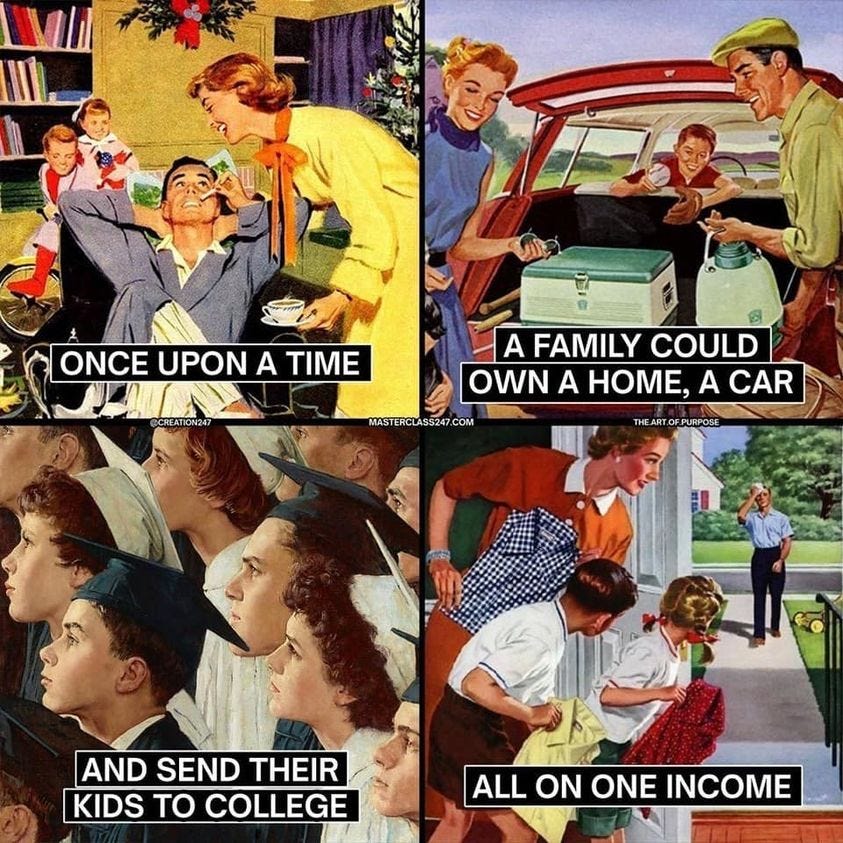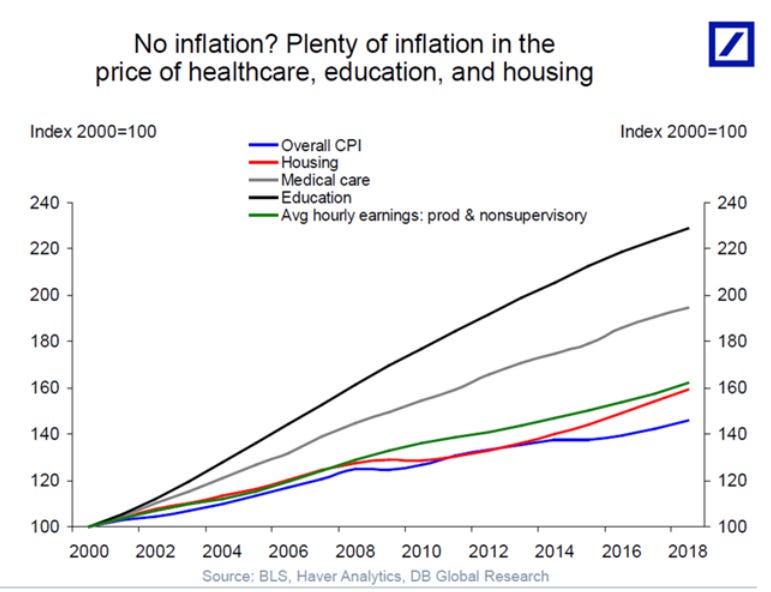"Was the Past Better Than Now?" is, Unsurprisingly, Not a Coherent Question
sometimes, I suspect that human existence is multivariate
There are two ways in which the notion of a monolithically better or worse past tends to crop up these days, as far as I’ve noticed. First, you have the kind of dopey nostalgia like the kind you see in the widely-circulated image above. (Widely-circulated because it was widely shared both sincerely and in mockery.) The other tends to crop up in debating some specific preference for the way things were in the past; people will then accuse you of racism or similar because racism was worse in the past, and for some strange reason if we want anything to be more like the past, we want everything to be. This is a common gambit in the endless and wearying class vs identity civil wars within the left - you say “it sure seems like the labor movement in the early 20th century was popular and effective, maybe we should be more like that,” then people accuse you of supporting Jim Crow. Well, look: the question of whether the past was better than the present, writ large, is useless because we can’t go back to the past. What’s past is gone. But it also isn’t really particularly coherent either. You can always just decompose out various elements and find arguments for what’s better and what’s worse, and in fact, you kind of have to.
Of course the nostalgia is bullshit. Yes, in almost every material way, the present is better than the past. Almost every material way. The world and the country are undeniably vastly richer than they were in decades past. That family above could not have traveled to anything like as many places or as often as a typical family can now, unless they were truly wealthy. They owned one TV and it cost them something like $3000 in today’s dollars and it had a small shitty screen. Meanwhile I can fly to Tokyo from New York for less than $1000 and I can buy a pretty damn good 70 inch TV at Costco for $350. Both are a reflection of the fact that consumer goods and some (some) types of services have gotten much cheaper; they’ve also gotten vastly more accessible even beyond the price. (When we moved to the suburbs we were a little worried about finding a good Korean restaurant within driving distance, then discovered that there are two within less than a ten-minute drive, and at one of them we can speak Korean with all of the staff.) And of course the people in that image above were more likely to die of cancer or an infectious disease, and of course of course it’s not a coincidence that the single income above is earned by a white man, which was the only kind of person who could reliably expect to have the kind of professional opportunity necessary for this whole meme to work. I don’t really need to comprehensively critique this attitude, as it’s already been dispatched with by others and anyway I suspect even the people who advance it know that it’s kind of bullshit.
Cost disease and the paradox of higher wages. That said… I mean, look, the point made in the meme image above has a certain level of validity to it. It absolutely is difficult to raise a family and own a home on a single income. In particular, the price of healthcare, education and childcare, and housing have risen so dramatically that for a lot of families nominal increases to income and decreases to the cost of material goods still feel like running in place. And some of the reason for that speaks to inherent problems with modern capitalism. For one thing, every worker’s wage increase is another worker’s cost increase. Because everything we consume involves the use of labor, if the cost of labor goes up - and of course we want the price of labor, AKA wages, to go up - then over time, everything gets more expensive. (Our overheated AI rhetoric is based in part on the idea that we can sever this relationship.) Now much of capitalist production gets more efficient over time, which is why you can get that $350 70-inch TV I mentioned. But there are limits to these efficiency gains, as a $7 Chinese-made plastic Walmart trashcan probably just doesn’t have much more room to get cheaper. And some products are in fields where the competition is so intense that even the lowest-end products get more and more features and thus more and more expensive; cars are the prototypical example. Meanwhile, houses just get bigger and bigger, and developers have little incentive to reverse this trend.





